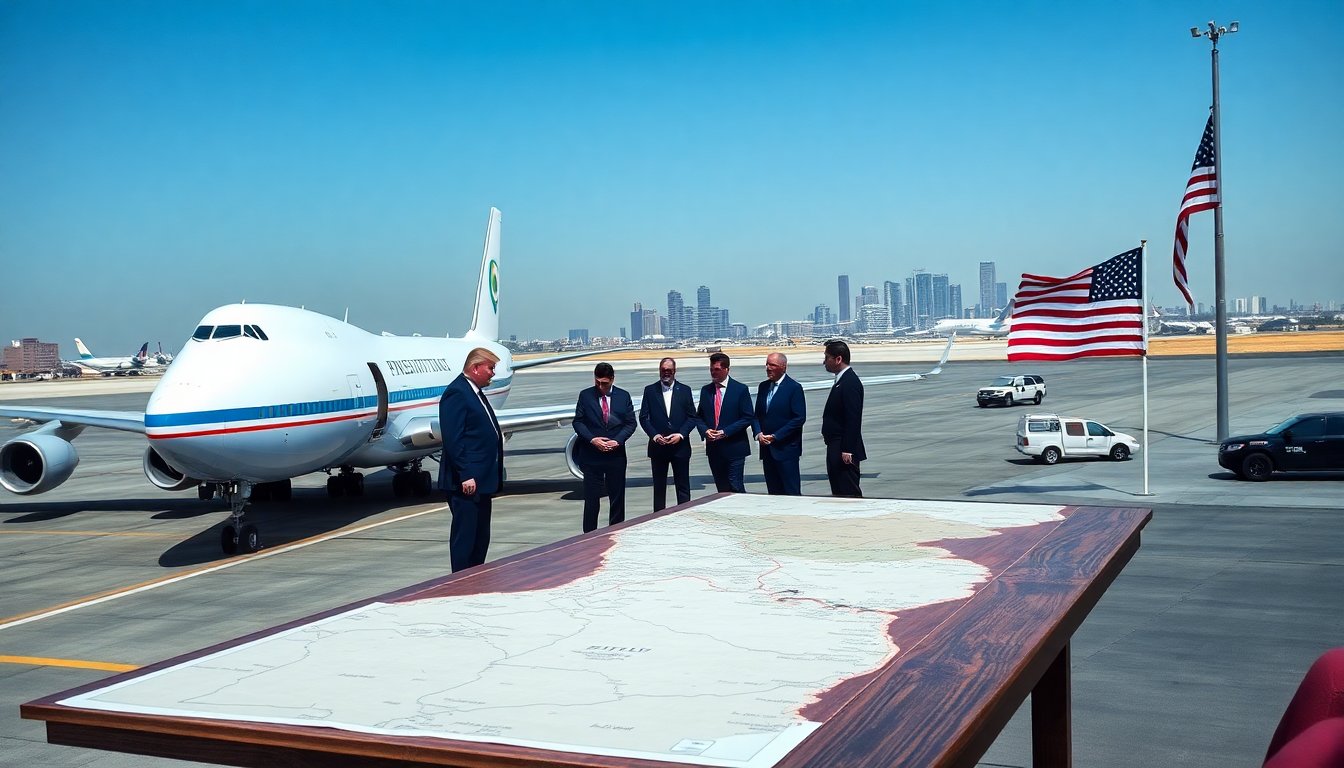Table of Contents
In the latest developments surrounding the ongoing conflict in Gaza, President Trump has announced plans to travel to the Middle East this weekend. This announcement arrives at a critical juncture, as negotiators reportedly make significant strides toward finalizing a peace agreement.
The president expressed optimism, stating that a resolution to the hostilities is “very close.” This declaration has ignited renewed hope among local and international observers closely monitoring the situation.
Potential visit to Egypt
Trump’s potential trip to Egypt represents a significant step in diplomatic efforts aimed at stabilizing the region. Egypt has historically played a vital role in mediating conflicts between Israel and Palestinian factions. By visiting, Trump may seek to strengthen relationships with key allies essential for achieving lasting peace.
Context of the negotiations
The ongoing negotiations are characterized by complex dynamics, involving multiple parties in dialogue. The talks have reportedly focused on critical issues, including ceasefire terms, humanitarian aid access, and the long-term framework for peace in the region. Observers note a shift in tone, with all parties appearing more open to compromise than in previous discussions.
Trump’s statement that a deal is “very close” reflects his administration’s commitment to resolving the conflict and a broader recognition of the urgent need for stability in the Middle East. The humanitarian crisis resulting from the ongoing war underscores the necessity for swift action.
Regional implications of a peace deal
A successful peace agreement could have profound implications for the entire region. If a ceasefire is achieved, it may pave the way for increased international investment and support, fostering economic development in areas affected by the conflict. Furthermore, a peaceful resolution could strengthen diplomatic ties between Israel and its Arab neighbors.
International reactions
The international community is closely watching these developments, with various nations expressing support for the peace talks. Leaders worldwide have called for an end to the violence, emphasizing the importance of unity and cooperation in the region. As negotiations progress, there is a palpable sense of hope that a breakthrough may be on the horizon.
Moreover, Trump’s potential visit to Egypt could signal to other nations the United States’ renewed commitment to Middle Eastern diplomacy. Analysts suggest that such a move might also enhance Trump’s standing on the global stage as a leader capable of fostering peace.
Challenges ahead
Despite the optimism surrounding the talks, numerous challenges persist. The historical complexities of the Israeli-Palestinian conflict mean that even a tentative agreement must navigate various sensitive issues. Both sides harbor deep-seated grievances that need addressing to ensure lasting peace.
Additionally, external factors such as regional rivalries and geopolitical interests complicate the landscape. The involvement of other nations could either facilitate a peaceful resolution or introduce additional obstacles. Thus, while the prospect of a deal is encouraging, the path forward remains fraught with potential pitfalls.
The president expressed optimism, stating that a resolution to the hostilities is “very close.” This declaration has ignited renewed hope among local and international observers closely monitoring the situation.0


